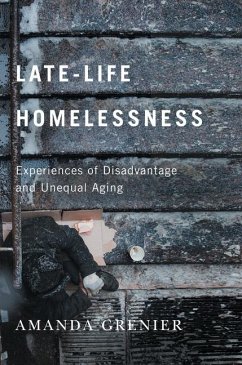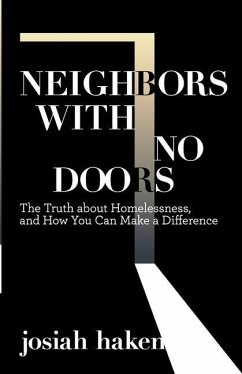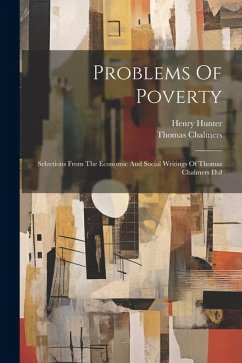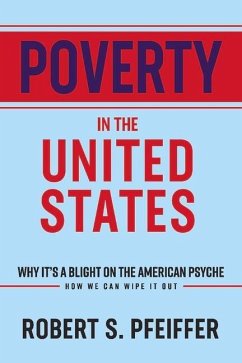
Over The Peanut Fence
Scaling Barriers for Runaway and Homeless Youths

PAYBACK Punkte
7 °P sammeln!
Over the Peanut Fence asks one question-Is eliminating youth homelessness a hopeless endeavor? The search for an answer began when Marilynne Eichinger and her partner, Ray Losey, invited a twenty-year-old street youth into their home. The book tells the story of Zach and the trauma he experienced as a result of childhood abuse and neglect. Raised in poverty, he was the fifth of nine children in a family plagued by drugs and alcohol. He left home at sixteen to seek a better life on the streets. Zach was a survivor and eventually clawed his way from hopelessness to a future filled with possibili...
Over the Peanut Fence asks one question-Is eliminating youth homelessness a hopeless endeavor? The search for an answer began when Marilynne Eichinger and her partner, Ray Losey, invited a twenty-year-old street youth into their home. The book tells the story of Zach and the trauma he experienced as a result of childhood abuse and neglect. Raised in poverty, he was the fifth of nine children in a family plagued by drugs and alcohol. He left home at sixteen to seek a better life on the streets. Zach was a survivor and eventually clawed his way from hopelessness to a future filled with possibilities. Along the way he was helped and encouraged by many generous souls. In addition to Zach's emotional climb from poverty, Eichinger interviewed others who's traumatic childhood thrust them to the streets. They tell of unwanted pregnancies, abandonment, molestation, and hunger.They speak of neglect, cruelty and drugs, exemplifying the reasons adolescents run from home. Eichinger devoted years to the study of homelessness, a problem that seems to defy government solutions. In addition to explaining causes, she presents a synopsis of current research on the adolescent brain and explains numerous therapies used to assist troubled youths. The author honors the devotion of caseworkers and volunteers who strive to make a difference by caring, providing hope, and showing ways forward. Eichinger is optimistic that this fight to overcome youth homelessness can be won and gives many suggestions of ways to do so. Part storybook, part memoir, and part analytic study, Over the Peanut Fence shows what is and what will be when society is moved to action.













